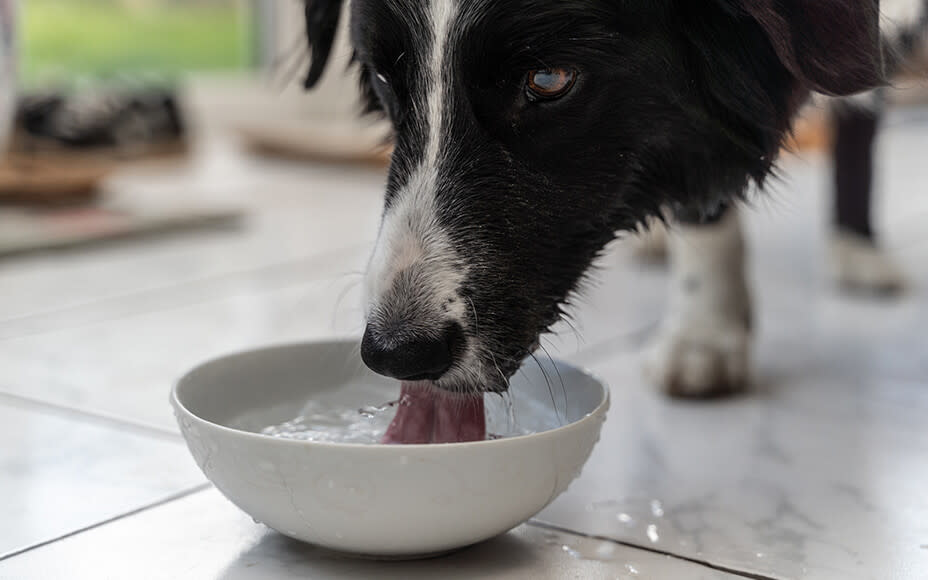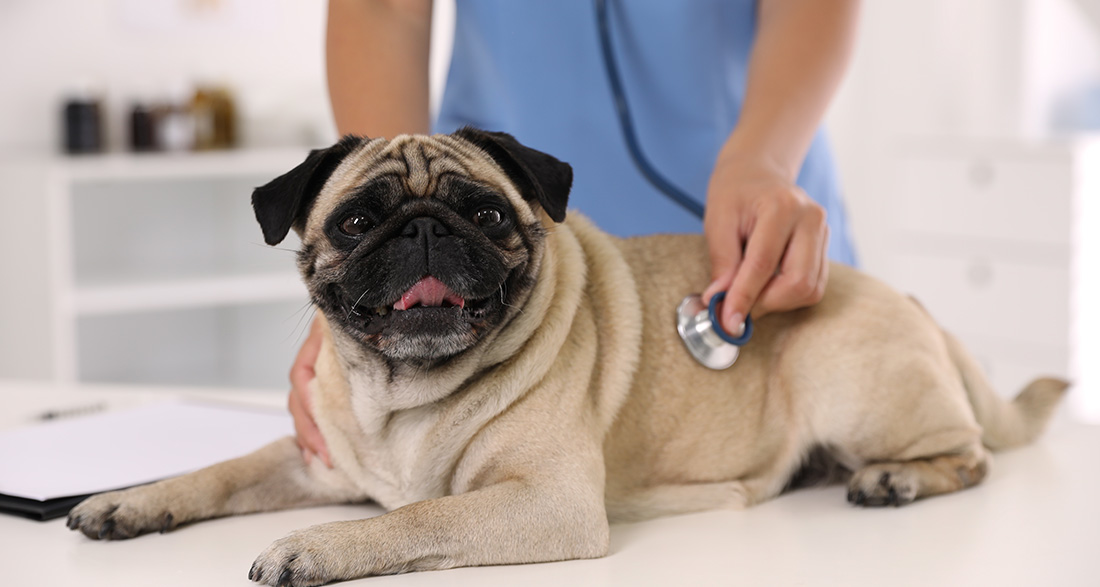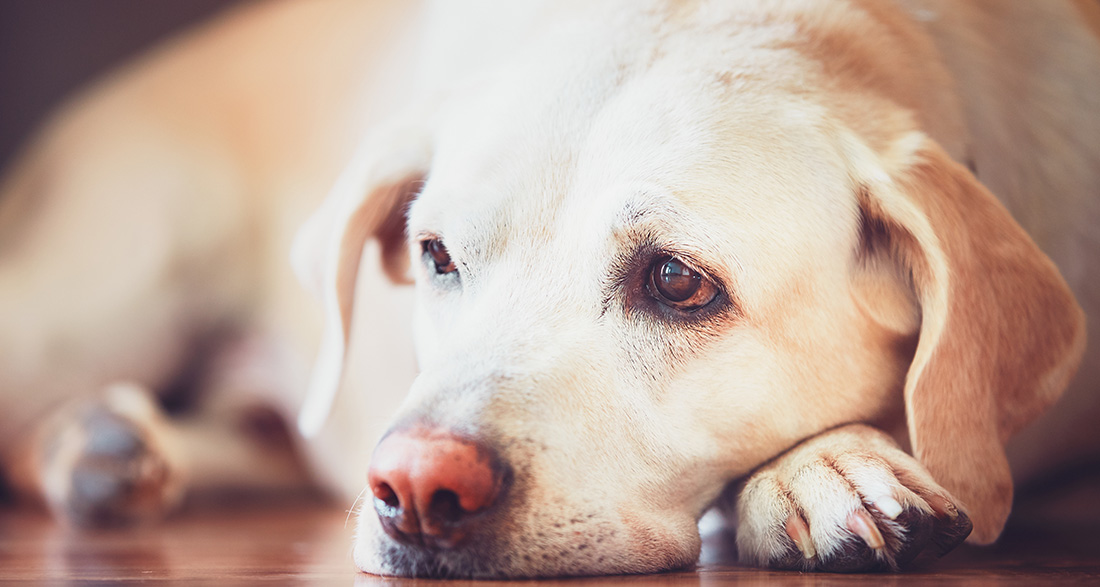If your dog has diarrhea, you can try using a few of these home remedies. Learn when it’s time to consult a vet.
Your Dog Has Diarrhea? Here’s What You Can Do!
Issues with digestion and the gastrointestinal tract can occur in dogs from time to time. Often, diarrhea in your dog is nothing serious and may resolve within 1-3 days. However, it’s essential to keep an eye on your furry friend, and if the condition doesn’t improve, a visit to the vet is recommended. Quick relief for acute or chronic diarrhea typically comes from medications prescribed by veterinarians. But if it’s not too severe, you can attempt to help your canine companion with the following 5 home remedies for diarrhea in dogs and tips.
Tip No. 1: Activated Charcoal Tablets
As a small first aid measure for diarrhea, you can give your dog activated charcoal tablets. They bind toxins in the gastrointestinal tract and help expedite their removal.
But how many charcoal tablets are the right amount for dogs? The number of charcoal tablets or activated charcoal required for a noticeable effect depends on your dog’s body weight. According to a rule of thumb, it’s 0.5 to 1 gram x your dog’s body weight. So, if your dog weighs 10 kilograms, that would be approximately 5 to 10 grams of activated charcoal. This can sometimes mean an entire packet for larger dogs, considering that a typical charcoal tablet contains only 250mg of activated charcoal.
Quick Tip:
During your next vet visit, ask about the appropriate amount of activated charcoal for your dog and equip your home pharmacy accordingly.
Tip No. 2: Fresh, Clean Water
Huh? Just give fresh, clean water? Sounds simple, but it’s often not that easy. With diarrhea, your dog loses a significant amount of fluids, which can potentially lead to dehydration. Therefore, it’s crucial that your dog drinks plenty of water. However, as you might know from your own experiences, exactly when it’s needed, one doesn’t feel like drinking.
Alternatively, you can also brew some chamomile tea and offer it to your dog. Of course, it should be cooled to room temperature and not served boiling hot.

Tip No. 3: A Day of Fasting
Even though it may sound tough, a day of fasting can be helpful. This means: no eating for 24 hours. And by nothing, it also means no treats or other small items. Not even if your dog pleads with those big hungry eyes. Fasting relieves your dog’s irritated gut and prevents the body from losing water, thereby reducing the severity of diarrhea.
After fasting, you can provide your dog with special easily digestible food, leading us to the 4th tip:
Tip No. 4: Offer Bland Diet
After your dog has fasted for 24 hours, you can reintroduce food. However, it should not be the full amount or his regular food. But what’s the best thing to feed your dog when he has diarrhea?
For a sensitized stomach, your dog can be given a bland diet, and one tasty option is oatmeal mixed and soaked in water to form a porridge rich in fiber, which can help with diarrhea. Also, small amounts of banana can have a constipating effect and are suitable in moderation for dogs with diarrhea.
A healthy bland diet typically consists of boiled chicken, very soft cooked rice, and some cottage cheese if your dog can tolerate lactose. Our special VET Stomach & Digestion Fit wet food also helps with an upset tummy, supporting intestinal function with valuable fibers from carrot and psyllium husks.
Tip No. 5: Rest and Relaxation
Those who are unwell need bed rest – this applies to our furry friends too! Keep walks a bit shorter and calmer and match your pace to your dog’s. The body is often weakened by diarrhea, and your dog may need a bit more time for everything. If there are also children in the household, explain to them that the dog is unwell, they should leave him in peace, and perhaps play a bit quieter.
When Should You Visit the Vet?
If you’re uncertain, you can always visit a vet. Sometimes, a simple call is enough. If your dog doesn’t get better after 3 days, it’s advisable to visit the vet.
Also, if your dog is a puppy or a senior, you should consult a vet directly. For puppies with diarrhea, it’s not advisable to search for home remedies. The reason: their gastrointestinal tract is not yet fully mature and may not handle acute fluid loss well. In such cases, diarrhea can quickly become dangerous, so it’s essential not to wait for a few days. The same applies if your dog exhibits the following symptoms in connection with (watery) diarrhea:
- Blood in the stool
- Vomiting
- Dog appears lethargic
- Trembling
- Fever
- Inadequate drinking or already suffering from dehydration
In any case, remember: If you’re unsure, it’s better to visit the vet too often than too little! While the mentioned remedies for diarrhea in dogs may help, they don’t replace a veterinary assessment of the situation.

Causes: Where Does Diarrhea in Dogs Come From?
What causes diarrhea in dogs? Diarrhea in our dogs can be triggered by various factors. Often, it’s harmless, and your furry friend might have eaten something outside or snatched something from the kitchen, his regular food upset his stomach, or he caught something from his dog buddies. Medications, vaccinations, or impure water from puddles can also be reasons for diarrhea in dogs.
Sometimes, there’s an underlying illness such as a gastrointestinal virus, Giardia, or worms. Stress or extreme heat, especially in the summer months, can also affect dogs’ stomachs.
Caution: However, you should be careful with poisoned baits! Has your dog picked up something outside, and you couldn’t identify what it was? Keep a close eye on him! Some poisonings only become noticeable after 1-2 days, while others take effect immediately. If your dog has ingested something toxic, quick action on your part and even faster treatment by medical professionals are required.


